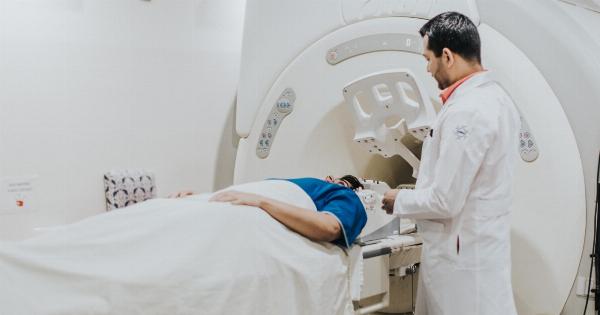When it comes to eating disorders, one of the more severe conditions is severely restricted eating.
This is a condition where an individual, in this case, a sixteen-year-old, restricts their food intake to a significant degree, resulting in negative health consequences. This article will explore the causes, symptoms, and treatment options for severely restricted eating in a sixteen-year-old.
Causes of Severely Restricted Eating in Sixteen-Year-Olds
There are many factors that can contribute to the development of severely restricted eating in a sixteen-year-old. Some of the most common causes include:.
- Genetics: Eating disorders can run in families, and some studies have suggested that there may be a genetic component to the development of these conditions.
- Psychological factors: Many sixteen-year-olds who develop eating disorders have underlying psychological issues that contribute to their behaviors. These may include low self-esteem, depression, anxiety, or a history of trauma.
- Cultural factors: In some cultures, there is a strong emphasis on being thin, which can put pressure on young people to restrict their food intake.
- Environmental factors: A sixteen-year-old who is exposed to images of thin models or athletes may feel pressure to look a certain way, which can lead to restricted eating.
Symptoms of Severely Restricted Eating in Sixteen-Year-Olds
There are several symptoms that parents, friends, or caregivers should look out for if they suspect a sixteen-year-old is engaging in severely restricted eating. Some of the most common symptoms include:.
- Rapid weight loss: A sudden and dramatic drop in weight can be a sign that a sixteen-year-old is restricting their food intake.
- Obsessive behavior: A sixteen-year-old who is engaging in restricted eating may become overly obsessed with food, calories, and weight.
- Skipping meals: A sixteen-year-old who is restricting their food intake may skip meals or only eat very small portions.
- Restricting certain foods: A sixteen-year-old who is engaging in severely restricted eating may avoid certain foods or food groups altogether.
- Changes in mood: Severely restricted eating can cause changes in mood, including irritability, depression, and anxiety.
Impact of Severely Restricted Eating on the Health of a Sixteen-Year-Old
Severely restricted eating can have a significant impact on the health of a sixteen-year-old. Some of the negative consequences of this condition may include:.
- Nutritional deficiencies: A sixteen-year-old who is restricting their food intake may not be getting all of the nutrients they need, which can lead to deficiencies. This can impact their growth and development, as well as their overall health.
- Heart problems: Severely restricted eating can lead to heart problems, including low blood pressure, slow heart rate, or irregular heart rate.
- Digestive problems: A sixteen-year-old who is restricting their food intake may experience constipation, bloating, or abdominal pain.
- Menstrual irregularities: In girls, severely restricted eating can cause menstrual irregularities, including missed periods or delayed onset of menstruation.
- Brain dysfunction: Severe restriction of food intake can lead to cognitive dysfunction, which can present in a variety of ways including brain fog, dizziness, or fainting.
Treatment of Severely Restricted Eating in Sixteen-Year-Olds
If you suspect that a sixteen-year-old is engaging in severely restricted eating, it is essential to seek treatment as soon as possible. The earlier treatment is started, the better the chances of a successful recovery.
Some options for treatment include:.
- Counseling: Counseling can help a sixteen-year-old identify and address underlying psychological issues that may be contributing to their restricted eating.
- Nutritional counseling: A nutritionist can help a sixteen-year-old develop healthy eating habits and provide guidance on how to eat a nutritionally balanced diet.
- Medical monitoring: A medical professional can monitor a sixteen-year-old’s weight and vital signs to ensure that they are safe and healthy.
- Medication: In some cases, medication may be prescribed to help with symptoms such as anxiety or depression.
- Family therapy: Family therapy can help the entire family understand the causes of severely restricted eating and develop strategies to support the individual in recovery.
Prevention of Severely Restricted Eating in Sixteen-Year-Olds
Prevention is key when it comes to severely restricted eating in sixteen-year-olds. Some strategies for preventing this condition may include:.
- Encouraging healthy eating habits: Parents and caregivers can encourage a healthy relationship with food from a young age.
- Limiting exposure to images of thinness: Parents and caregivers can limit the amount of time a sixteen-year-old spends exposed to images of thin models or athletes.
- Encouraging a positive body image: Parents and caregivers can help a sixteen-year-old develop a positive body image by focusing on their strengths and promoting self-confidence.
- Talking openly about eating disorders: Parents and caregivers can talk openly about eating disorders and encourage a sixteen-year-old to seek help if they are struggling.
- Modeling healthy behaviors: Parents and caregivers can model healthy behaviors, such as healthy eating and exercise habits, to help prevent the development of an eating disorder.
Conclusion
Severely restricted eating in a sixteen-year-old can have a significant impact on their health and wellbeing. It is vital to seek treatment as soon as possible if you suspect that a sixteen-year-old is engaging in restricted eating.
With the right treatment and support, it is possible to recover from this condition and develop a healthy relationship with food.



























